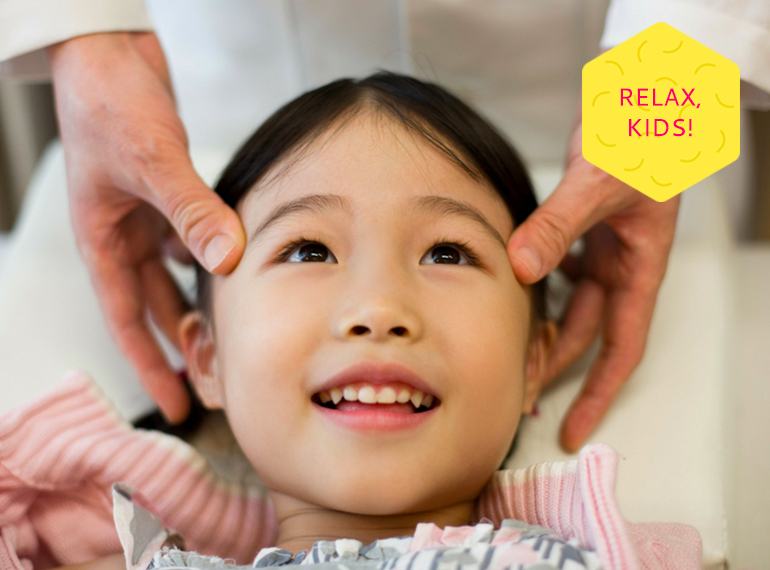 Paediatrics is one of the oldest modalities within the realm of Traditional Chinese Medicine that dates back to Tang Dynasty. In Traditional Chinese Medicine paediatrics, children are believed to be both physically and functionally immature. The Traditional Chinese Medicine perspective holds that because children’s body constitution is delicate and inherently weak, they are very vulnerable to a plethora of diseases, most notably those affecting the Lung, Spleen and Kidney. It is precisely due to children’s unique physiological traits that warrant a specialized discipline.
Paediatrics is one of the oldest modalities within the realm of Traditional Chinese Medicine that dates back to Tang Dynasty. In Traditional Chinese Medicine paediatrics, children are believed to be both physically and functionally immature. The Traditional Chinese Medicine perspective holds that because children’s body constitution is delicate and inherently weak, they are very vulnerable to a plethora of diseases, most notably those affecting the Lung, Spleen and Kidney. It is precisely due to children’s unique physiological traits that warrant a specialized discipline.
In Singapore, where western healthcare still dominates, many parents perceive Traditional Chinese Medicine only as a preventive treatment. Unknown to many, Traditional Chinese Medicine is also an alternative treatment that complements well with western medication. In fact, in a questionnaire done by 300 parents at a large local Traditional Chinese Medicine Clinic, 80% of parents admitted to concurrent use of Traditional Chinese Medicine and western medicine for their children. Apart from preventive concerns, the most common conditions where children sought Traditional Chinese Medicine treatment were gastrointestinal disorders followed by respiratory conditions.
The goal of all paediatric treatments is to restore balance and harmony to a child. It is therefore of paramount importance that we take into consideration each and every individual child’s physical and emotional constitution before prescribing Chinese Medicine.
On a child’s first visit to a Traditional Chinese Medicine clinic, the physician will examine the child’s complexion, eyes, physical build, tongue and the superficial vein of the index finger. The physician will then listen to the child’s voice and breathing and seek to understand the child’s medical history, lifestyle and dietary habits. All these information are essential to determining the child’s body constitution.
Children’s Spleen, Lung and Kidney are intrinsically deficient and accounts for common clinical ailments like cough, asthma, colic and indigestion; their Heart and Liver are inherently active and are responsible for disorders like insomnia or hyperactivity. Although children are susceptible to contraction and transmission of diseases, they are equally rapid in recovery and respond well to Traditional Chinese Medicine treatments due to their dynamic physiology. Chinese Medication, Diet, Paediatric Tui-na massage and Acupuncture are the main forms of treatment therapy for children.
Chinese Medicine comprises of a combination of herbs used together to form a unique decoction which is specially crafted to suit the needs of each individual. Although each herb possesses its own function, they also work synergistically to accomplish the task of restoring balance. Many parents are concerned with the overuse of antibiotics prescribed by western doctors. While antibiotics work to kill off bacteria directly, Chinese Medicine offers an alternative approach by improving the body’s own immune system to combat external pathogens. Scientific research has also found that many herbs possess anti-bacterial and anti-viral properties.
Diet plays a significant role in the growth and development of a child. A common misconception of parents is that eating more is beneficial for the child. In fact, overfeeding and overeating are one of the main causes of digestive discomfort. Overeating causes food stagnation, impedes absorption and eventually results in bloating, poor appetite, constipation or diarrhoea and slow growth. Children may occasionally take Chinese Pearl Barley – a gentle tonic which removes dampness, invigorates the Spleen and improves digestion.
Paediatric Tui-na massage is an ancient technique which involves stimulation of unique acupoints to regulate energy flow within meridians and internal organs. Treating a wide array of diseases ranging from common cold and cough to indigestion and insomnia, this method is safe, convenient, yet highly effective. As paediatric Tui-na massage employs gentle strokes, it is therapeutic and easily acceptable by children. Strength and frequency of the massage are varied according to the age and severity of the child’s symptoms. Paediatric Tui-na massage is most effective for children under 12 years of age.
Beyond 12 years of age, a child enters puberty, their body becomes mature, robust and regarded as a young adult. A combination Chinese medication and acupuncture on selected points would be the better option for common complaints of acne, stress, migraine, menstrual irregularities and insomnia.
Traditional Chinese Medicine is a holistic medicine that focuses on balancing yin-yang disharmony. Its gentle approach makes Traditional Chinese Medicine an excellent choice for many parents who wish to empower their children with better defensive powers and greater general well-being.
Traditional Chinese Medicine Paediatrics is now available at:
#02-08A United Square #B1-10 112 Katong
101 Thomson Road, S307591 112 East Coast Road, S428802
Tel: 6354 3981 Tel: 6636 3836
www.thomsonchinesemedicine.com
This article was contributed by Ms Karen Pek, Traditional Chinese Medicine Physician, Thomson Chinese Medicine






